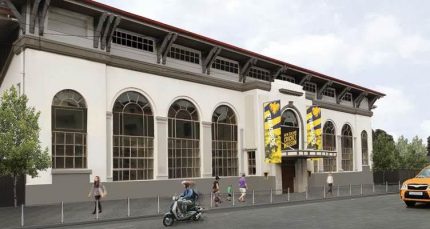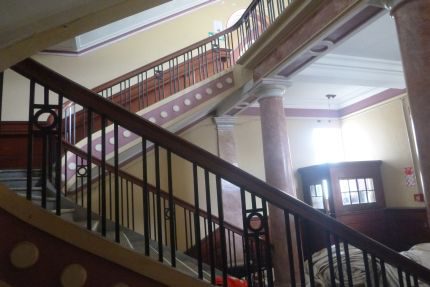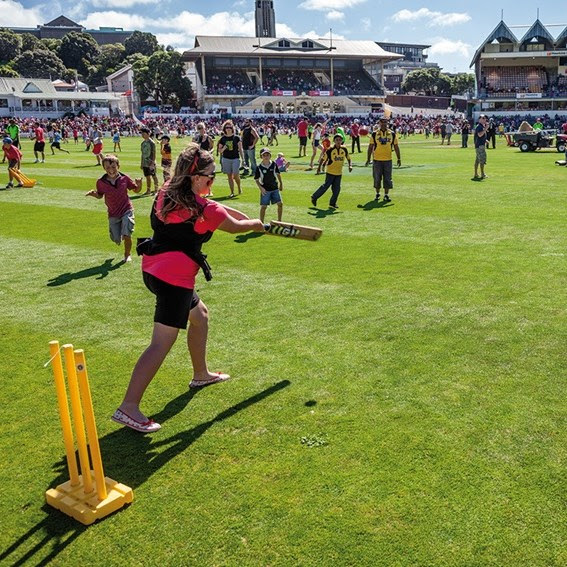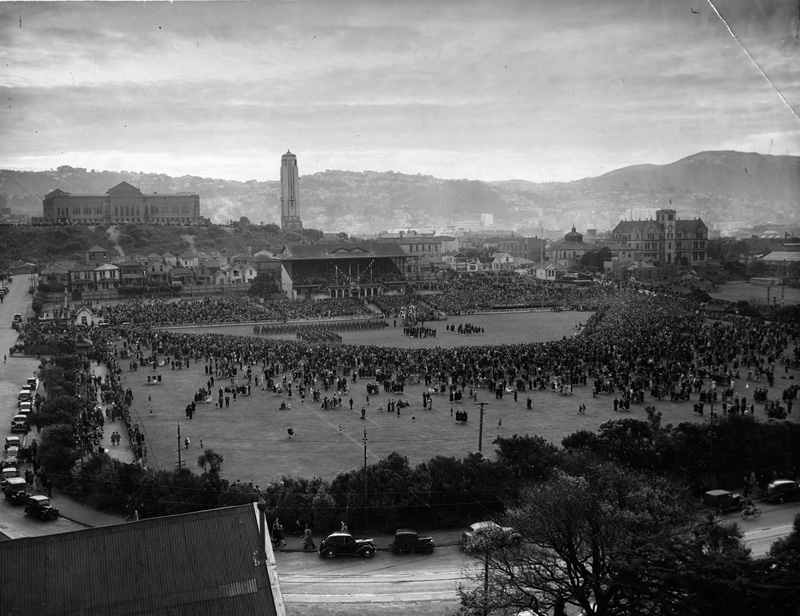The Save the Basin AGM was held last night, and my Co-Convenor’s report was adopted. I’m publishing it here as my summary of where things currently stand on the Basin and related issues – Tim Jones
UPDATE: NOTE FROM FRIENDS OF THE BASIN: Members of Save the Basin, Mt Cook Mobilised, Mt Victoria’s Residents Association, Newtown Residents Association, and other interested people have met to coordinate activities and share information about the development of the Basin Reserve Cricket Ground, and to work toward influencing decisions to create greater community use of the grounds and to protect its heritage. If you are interested in further information, or want to participate in this group, please contact alana.bowman@mac.com.
The Past Year
My Co-Convenor’s Reports to the 2014 and 2015 AGMs were both dominated by news of court cases – good news! In 2014, I was able to report that NZTA’s plan to build a Basin Reserve flyover had been defeated at the Basin Bridge Board of Inquiry. In 2015, I reported that NZTA’s appeal of that decision had been defeated at the High Court. In both cases, Save the Basin Inc. was one of the groups that played a big part in getting the right decision.
As I said in 2015, this was a major victory for the four groups that appeared to oppose NZTA’s appeal: The Architectural Centre, Mt Victoria Historical Society, and Mount Victoria Residents Association and Save the Basin Campaign Inc. – and a most welcome vindication for the Board of Inquiry’s patient, thorough and decisive analysis and decision.
Another year on, there is no big legal battle to report on, since NZTA chose not to pursue their vision of a flyover all the way to the Supreme Court – but while the issue has had a lower profile over the past year, plenty’s being going on behind the scenes.
In the wake of the High Court decision, two new official processes were set up: Let’s Get Welly Moving and the Basin Reserve Redevelopment Project. Let’s Get Welly Moving is a joint project between NZTA, Wellington City Council and Greater Wellington to reconsider transport options and projects around Wellington – not just at the Basin, and not even just along State Highway 1. And the Basin Reserve Redevelopment Project is Wellington City Council’s project to revamp the Basin itself, both as a cricket and as a recreation ground. The decision on the future of the Museum Stand is separate from but related to this project.
Save the Basin has met with senior staff from both projects, multiple times in the case of Let’s Get Welly Moving. Unfortunately, both projects have been bedevilled by staff turnover in key positions, including the original Project Directors of each project taking up other positions and having to be replaced. This has slowed the momentum of each project, and we are concerned that, so far, there appears to have been little communication between the two projects or their personnel.
Let’s Get Welly Moving has been carrying out extensive public engagement, and conducting research to inform its decision-making. It’s also been developing a suite of transport modelling tools designed to better capture the reality of a modern multi-modal transport system. Its original schedule has been pushed out a little, and it is now meant to come up with a range of scenarios for Wellington transport – not limited to the Basin, and not limited only to building infrastructure – by around March 2017. At this stage, with alternative options going on the table, I expect the Basin debate will sharpen once again, and Save the Basin’s voice may need to be strongly heard.
The Basin Reserve Redevelopment Project has also held public consultations, which Save the Basin contributed to, and the Council’s decision on the fate of the Museum Stand is expected in 2017.
The 2016 local body elections
Had the outcome been different, the 2016 local body elections could have partially or completely derailed the processes discussed above. Of the three leading Mayoral candidates, both Nick Leggett and Jo Coughlan wanted “four lanes to the planes”. Nick Leggett was an unrepentant supporter of building a Basin Reserve flyover, while Jo Coughlan proposed to short-circuit the LGWM process entirely by grabbing hold of a supposed billion dollars’ worth of Government funding and making a decision about the future of the Basin by Christmas 2016.
Neither prevailed. Justin Lester, who won convincingly, was a consistent opponent of a Basin Reserve flyover while he served as Celia Wade-Brown’s Deputy Mayor, and he now leads a Council which, in my opinion, has moved slightly further away from the views of the cars-above-all-else lobby. Similarly, while we were disappointed to lose such strong advocates of sustainable transport from the Regional Council as Paul Bruce and Nigel Wilson, and it was a disappointment that supportive candidates such as Russell Tregonning did not make it onto that Council, the signs are cautiously positive for more modern, sustainable, and forward-thinking transport policy in the Wellington region – though much still depends on the Government’s attitude.
The transport portfolios as the City Council have gone to Chris Calvi-Freeman and Sarah Free, while Paul Swain will no longer be leading the transport portfolio for the Regional Council. I’m hopeful that these changes will mean a greater openness to the notion that transport in a modern capital city is about more than moving more cars more quickly.
One other issue on which Save the Basin has submitted is the proposed extension of Wellington Airport’s runway, which is currently the subject of a resource consent application. As a group, our primary concern here is construction traffic. The airport company has asked for consent to run 23-metre long heavy trucks day and night, from 9.30am-2.30pm and 10pm-6am, along State Highway 1 for 3-4 years (and possibly up to 10 years) to transport up to 1.5 million cubic metres of fill between Horokiwi and Kiwi Point quarries and the airport. The planned route goes around the Basin Reserve and through the Mt Victoria tunnel – and the airport company is projecting up to 620 of those heavy truck movements a day, at a frequency of up to one heavy truck movement per minute. We consider this would have a serious impact on residents along the route, on the safety and comfort of other road users and pedestrians, on the transport network, and on the environs of the Basin Reserve.
Conclusion and thanks
While 2016 has been a relatively quiet year in comparison to the previous two, that may well not be the case in 2017. Therefore, it’s important for Save the Basin to remain active, both to advocate for the future of the Basin Reserve as a cricket and recreation ground and public facility, and to maintain our standing in terms of future decision-making processes, and any legal processes that may arise from those. I’d like to thank Treasurer Ross Teppett and committee members Kate Zwartz, Judith Graykowski, Alana Bowman and Pauline Swann for their hard work and support, and to all our supporters who have stuck with us and continue to work for a better future both for the Basin Reserve, and for Wellington’s transport system.
Tim Jones
Co-Convenor
Save the Basin Campaign Incorporated



